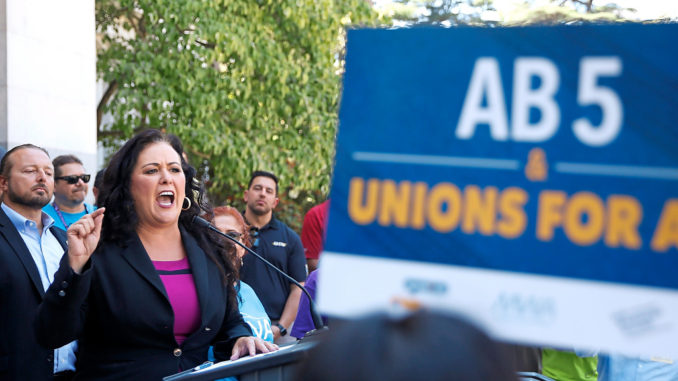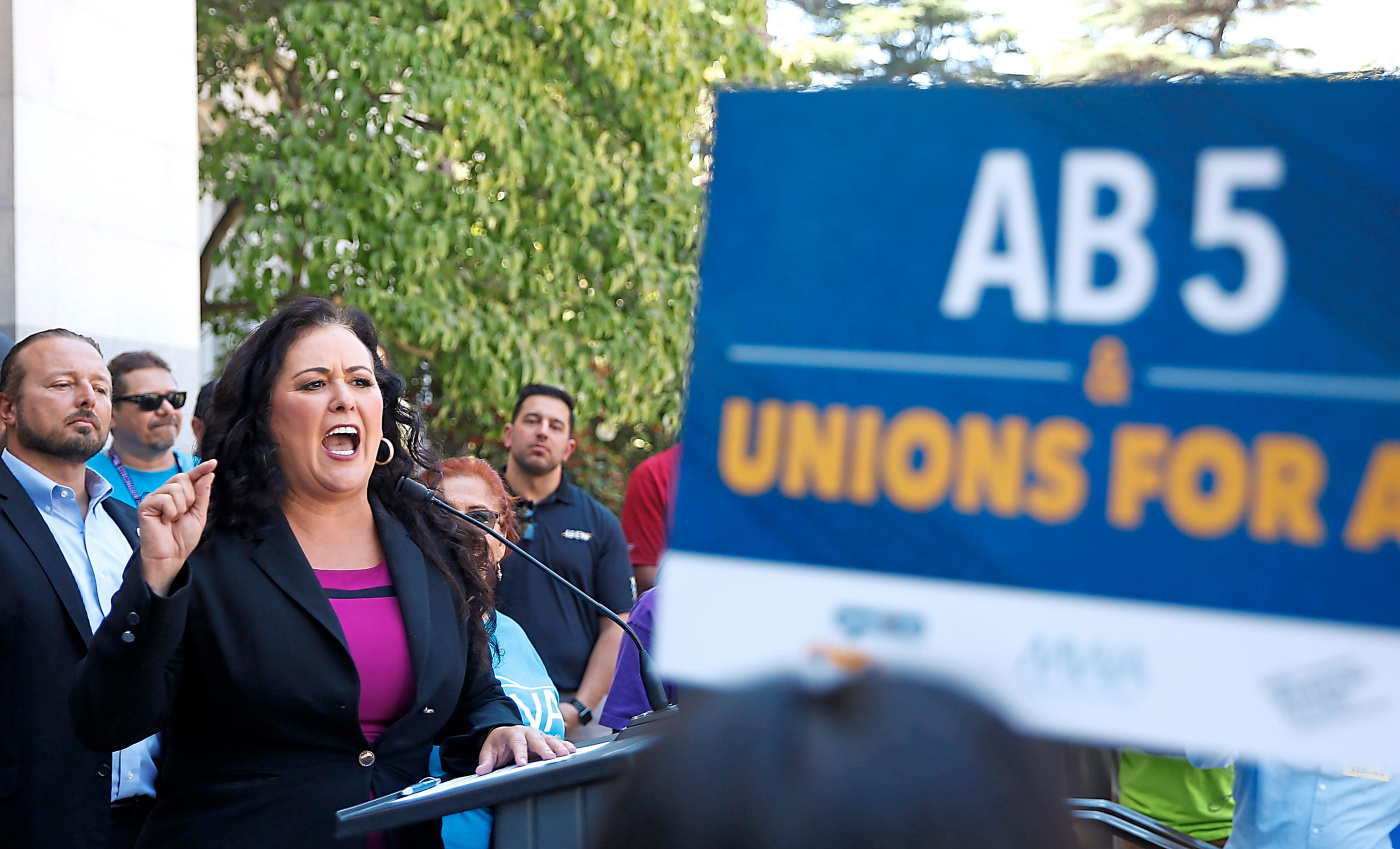
California’s Assembly Bill 5 continues to be a lightning rod. Workers and companies are fighting its application, a recent follow-up law granted exemptions for several additional industries, a repeal attempt failed, courts are considering legal challenges, and voters will soon decide whether to partially unravel it.
The law, a first-of-its-kind attempt at reclassifying millions of independent contractors as employees, attempts to compel companies to provide freelancers with more benefits. The result? Many workers have become substantially more expensive to hire, and during the worst downturn since the Great Depression.
With America’s fifth-highest unemployment rate—11.4 percent—this is the last thing Californians need.
The coronavirus crisis has decimated service sector jobs. According to the most recent Yelp.com data, over 97,000 businesses across the nation had permanently closed as of August 31. The initial rapid economic recovery has now abated, and job growth from here on out will likely be much slower.
That’s why lawmakers’ refusal to repeal AB5 is surprising. You’d think that with state unemployment 3 percentage points higher than the national average, they’d be trying to make it easier to find a job. The pandemic motivated other states to shed regulations that were (among other things) making it harder for entrepreneurs to innovate to preserve and create new jobs. But California’s leaders doubled down.
Industries composed largely of freelance workers have come out in solidarity against the law. The American Society of Journalists and Authors and the National Press Photographers Association partnered with the Pacific Legal Foundation to file a lawsuit last year challenging its effect on free speech. The lawsuit came a day after Vox Media announced that it was cutting hundreds of California-based freelance writers in response to the law.
Even former Assembly Speaker and San Francisco Mayor Willie Brown has been affected. Last month, his 12-year streak of Sunday columns in the San Francisco Chronicle came to an end. If the newspaper had run one more of his articles, it would have violated AB5’s independent contracting limit.
By passing AB2257 in September, lawmakers continued to pick and choose who the law should apply to. Many professions with influential lobbying organizations, like lawyers, insurance agents, and securities brokers, were exempt from AB5. Now more have been added to this list.
Less-influential professions must fight for themselves. California truck drivers sued and were granted an exemption due to a preexisting federal law that protects them. Freelance economy firms Uber, Lyft, DoorDash, InstaCart and Postmates have poured over $181 million into a campaign for Proposition 22, which would shield app-based drivers from AB5’s crosshairs.
And that seems to be the dominant story here: Although some publicly applaud AB5’s intent, most industries and workers are doing everything they can to avoid its costs. In the end, the law may only apply to those who lack the political power to protect themselves.
Brown, frustrated by the union lobbyists who championed the law (which makes independent contractors susceptible to unionization), had this to say: “[As Assembly Speaker] I made sure that special interests, no matter who they were — labor or non labor — did not take advantage of the Legislature … Those bastards.”
AB5 is the poster child for unintended consequences, which the legislature’s passage of AB2257 more-or-less acknowledges. For some workers and employers — who need the freedom, mobility, and flexibility of contract work — it’s like being asked to swim with cement shoes. Even the freelance industry’s solution — Proposition 22 — is too small of a flotation device. All workers should be exempted from AB5.
Michael Farren is a research fellow and Trace Mitchell is a research associate with the Mercatus Center at George Mason University.





